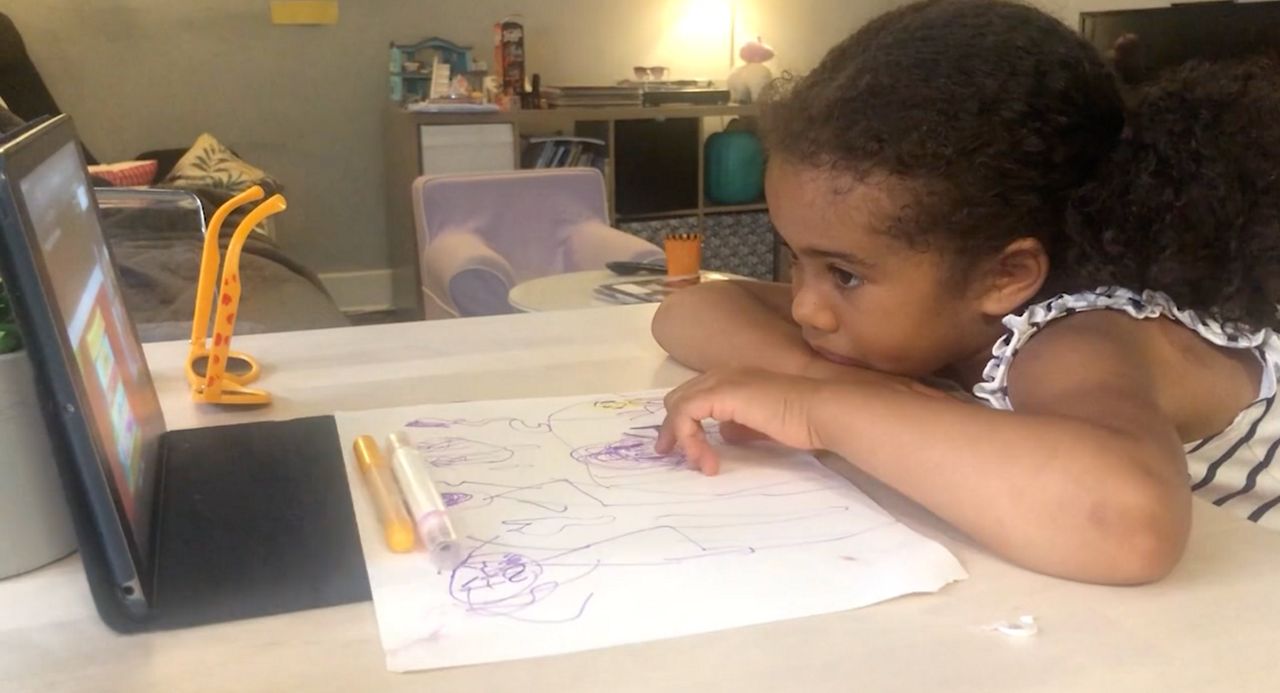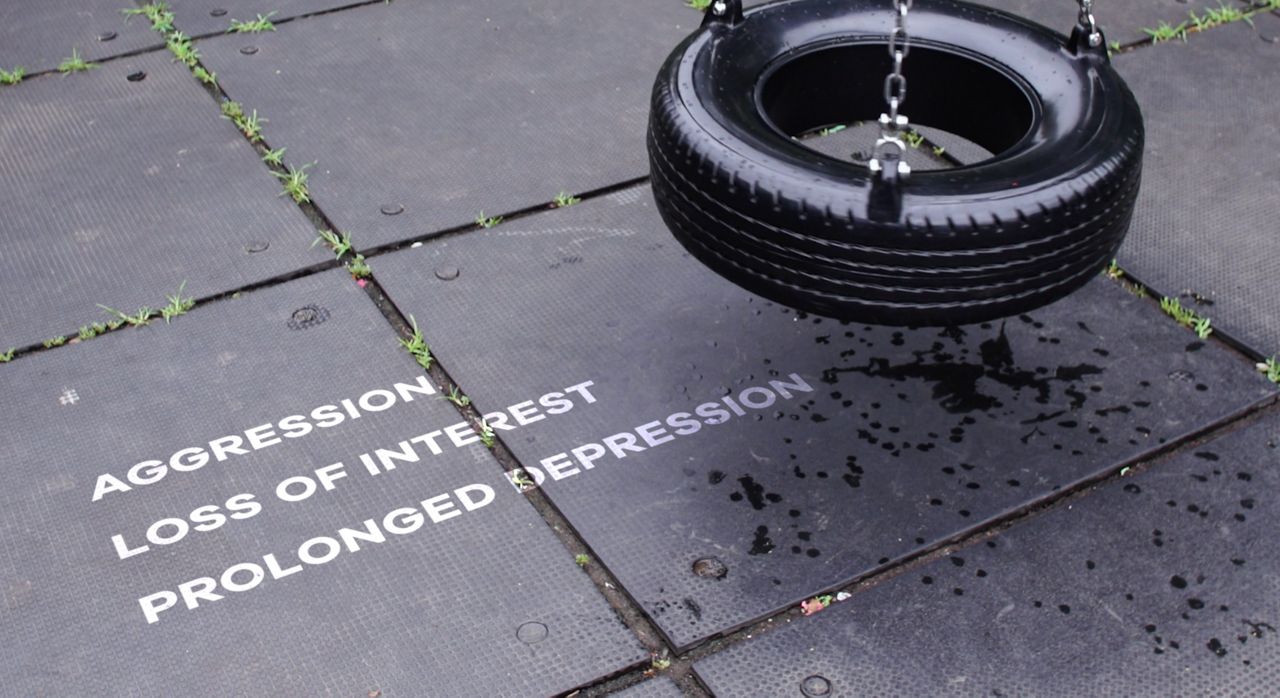This story is the first installment of a four-part Exploring Your Health series delving into the mental health impact of the pandemic and social unrest on families and communities across the country. For part 2, click the link below:
Many camp programs are canceled, millions of kids are home with little to do this summer, after months of remote learning, stuck with parents who are also trying to work. It is far from easy, and with coronavirus cases surging across the country, there is no end in sight to these makeshift arrangements.
Camille Hunt says she sees the impact of the changes on her daughter Ruby, particularly when the four-year-old asked to create a book. “It was essentially this book about these two friends who didn't get to see each other because one got sick,” said Hunt. “Right there, I was like she's feeling this. She's really missing her friend.”

Psychologist Jamie Howard, who directs the Child Mind Institute’s Trauma and Resilience Program, says that while most children won’t experience trauma from the visible worries and fears of the adults around them, parents may see changes in their social emotional development.
“When kids are stressed out, especially young kids, they tend to regress. So they engage in behaviors that they had outgrown. So they might start sucking their thumb, throwing more temper tantrums, having a hard time separating at bedtime. And that kind of behavior means they're anxious or unhappy about something because the pattern has changed. The routine has changed,” said Howard.
Hunt recalls Ruby’s reaction during one of her preschool Zoom classes, “she said, ‘I'm a little nervous about going back to school.’ And I said, ‘why, you love school?’ It's almost like how she was when we started pre-K.”
Howard says while kids are resilient, each child will respond differently to the changes brought on by the coronavirus. “If a child seems really sad or anxious, we don't necessarily want to become alarmed, because it's normal to sometimes feel sad, sometimes feel worried and sometimes feel mad at this situation. It's more when it starts to impact how they function that we become more concerned.”

If a child or teen is overly aggressive, unwilling to do things he previously enjoyed, or seems persistently depressed, it may be time to seek out professional help.
Howard says children who have felt the effects of the pandemic personally (ie: losing a loved one to COVID-19 or getting sick themselves) may show signs of trauma, such as trouble sleeping and eating, mood swings, or an intense focus on death.
“Kids at risk for PTSD will be those kids that were more directly exposed to this illness,” said Howard. “Maybe they live in a community where a lot of people around them were catching it and getting very sick. So those kids will be most at risk for developing PTSD. Also, kids who've had preexisting traumas as well.”
Experts like Howard say reassuring young people of their safety, steps they can take to remain healthy, creating structure to the day, taking time to talk with them about the pandemic, and limiting how much news kids and teens watch, goes a long way in helping them feel less anxious.
“You want to focus on telling kids what to do, [rather] than what not to do,” said Howard. “So you're focusing on washing your hands, staying six feet away from people, pointing out, not with a fearful sort of response or emotion on your face, but more of a matter of fact ‘this is what we do to stay safe here.’ So what they're encoding is the responsibility and the safety rather than the fear and feeling completely out of control.”
For middle and high schoolers, Howard suggests trying to create physical distance between workplaces within your home, as much as possible creating designated spaces in different rooms.
“So that they can have their separate school time and as much as you can, have some separate family time. It can all become one big muddled, you know, family activity all day and night long,” said Howard. “If you can, have some kind of routine with differentiated activities. Parents also need some respite or some time for themselves. Unfortunately, that's extremely hard to get right now. But if they can make that as much of a priority as everything else, take 20 minutes even to sit down by yourself and decompress, that can really help because children do vibe off of their parents.”
Ultimately, Howard says the kids will be all right — as long as their parents or home life is all right.
In part two, we look at the effects of COVID-19 on the mental health of parents.
